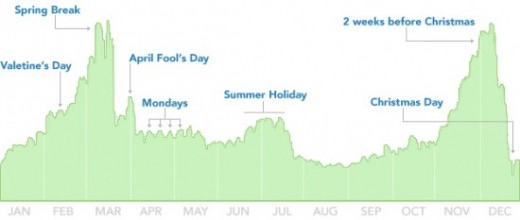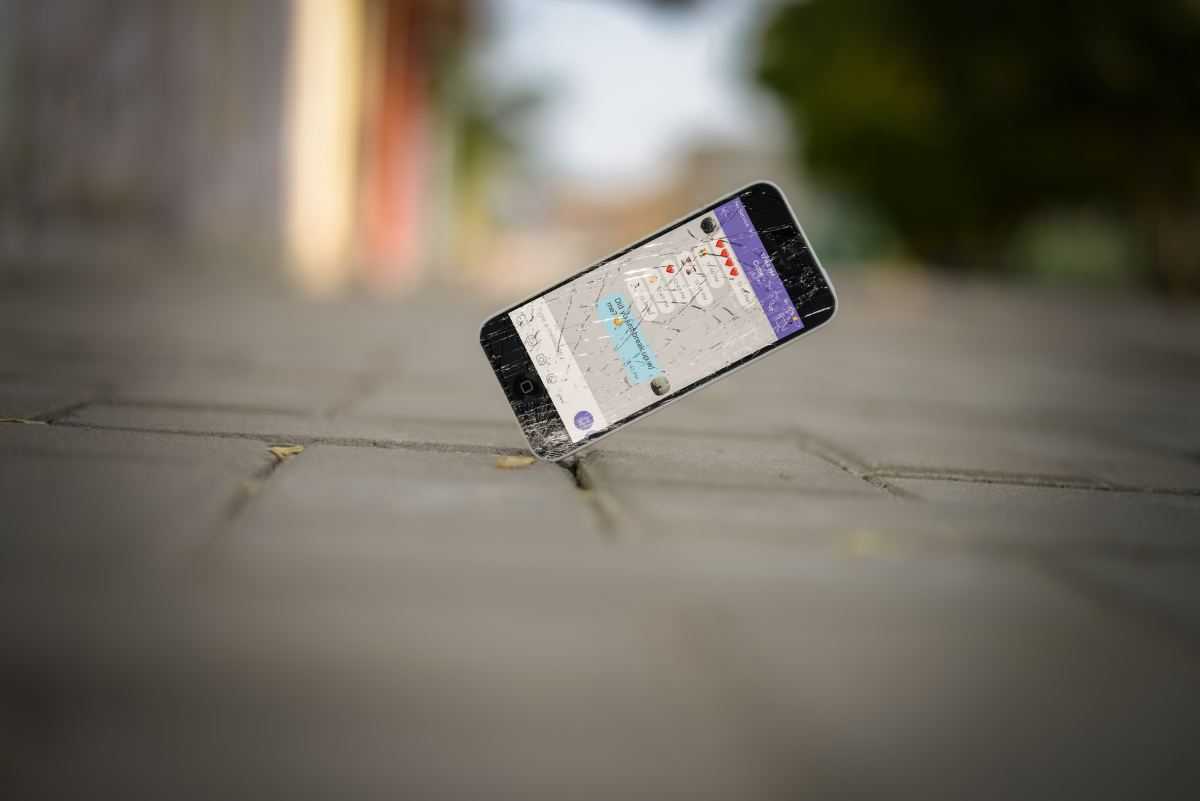The Most Popular Day In The Year For Dumping Your Partner? - Monday, December 13th 2010
Author: Essy Redfield
"T'is the season to be jolly", goes the popular Xmas Carol. Well, according to some eye-opening Facebook trends gathered by David McCandless, for many t'is the season to get jolly drunk and drown sorrows with a jolly large tub of ice-cream.
That's because we are rapidly approaching peak relationship break-up season.
McCandless analyzed the feeds of thousands of Facebook users, searching for terms like 'break up' and 'is now single', and plotted these over time. Some really interesting trends emerged, and based on what McCandless found, we can determine the exact day in the year when most breakups happen.
Here's a graph of the trends:

As you can see, there are two large surges in breakup activity. One right before Spring Break (people like to be single on vacation), and a slightly larger one two weeks before Christmas.
If you look closer at the graph, you will also see micro-peaks every Monday, which is most popular day of the week to dump your partner.
So when we combine the peak two weeks before Christmas with the weekly Monday peek, we can safely say that Monday, December 13th 2010 is the day you are statistically most likely to break up with your partner (or heaven forbid, vice versa).
Why the surge of breakups two weeks before Christmas?
I have come up with this highly spurious list of reasons which are based nothing on fact and entirely on my own hypothesising:
- You know it's too evil to breakup with someone during Xmas, so they get it out the way before the festive holidays to get it over and done with (notice the dip on Xmas Day in the graphic).
- You don't want to waste money buying them a Xmas present, only to dump them afterwards - it makes sense to do it beforehand.
- You like the idea of guilt-free flirting at the Xmas Party.
- The stress of Christmas fosters a relationship melting-pot.
- You're thinking about your New Year's Resolutions, and top of the list is to make a fresh start relationship-wise.
Regardless of the real reasons, it's fascinating to see the seasonal changes in relationship dynamics based entirely on Facebook activity. What other trends would you like to see coming from the analysis of Facebook data?



